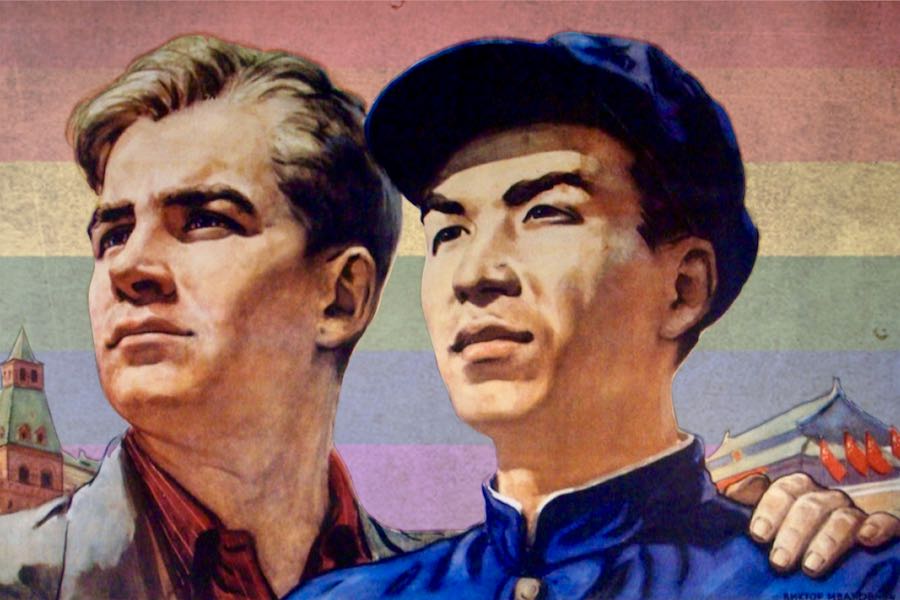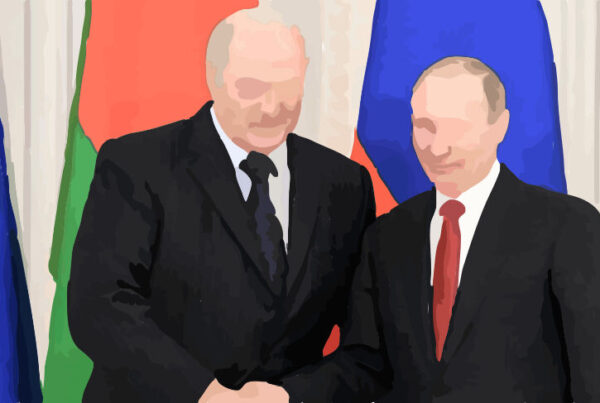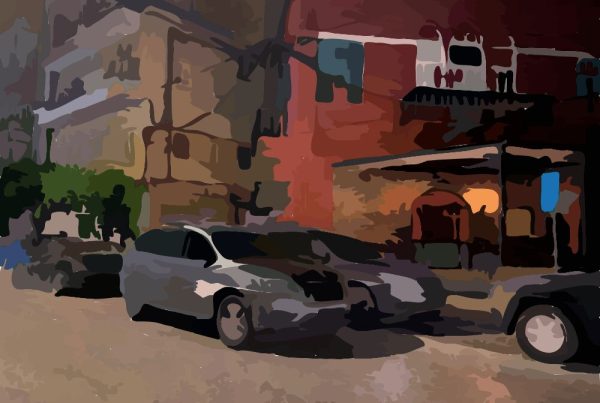“It is a new era for China’s LGBT groups” says activist Ah Qiang, founder of PFLAG China, an association that brings together parents, relatives and friends of the homosexual community. Ah Qiang was interviewed by Xie Wenting -who often writes about sexual minorities in China- for the Global Times, the English-language Chinese newspaper owned by Renmin Ribao (People’s Daily), the official organ of the Central Committee of the Communist Party of China.
The article explains how the Chinese LGBTQIA movement (lesbian, gay, bisexual, trans, queer, intersex and asexual) is growing both in “width” by getting involved in international affairs (for example organizing petitions that involve other countries’ organizations) and “depth” (the movement was born to primarily support HIV prevention and now deals with a wider range of topics). This was possible thanks to activists who studied abroad, traveled and overall have been able to experience and understand the circumstances of the rest of the world. Furthermore, at a closer reading, the article illustrates deeper insights.
The “Chinese solution”
The Chinese LGBQTIA movement is now an explicit point of reference for all Asia and Africa activists, areas in which Beijing’s political and economic influence is getting stronger. Last year, for example, Wei Jianggang, director of the Gender Health Education Institute of Beijing, has launched a major new project focused on Africa to teach sexual minorities in the continent, how to use documentary film to carry out their own battles.
In the Global Times report, China itself is also presented as a point of reference for all the non-Western world, with which it shares the same economic development and the same “cultural context”. It could almost be said that China is ready to propose its “zhongguo fang’an” (Chinese solution), as President Xi Jinping called it during the 19th congress of the Communist Party of last October, The resident indicated that China today can present itself as: “a new option for other countries“, a statement that demonstrates its supremacy at the global level.
“Cultural Context”
Overall, the article is echoing the communist leader’s speech on the new central and enterprising role that Beijing is called to perform, which is about economy (the “new silk road” is the most important foreign investment plan of human history), politics (new strategies aiming to increase dependence of other countries on China), major global debates (from climate to commerce), and cultural influence. Under this light the Global Times’ story is no longer a dispassionate description of existence, but it sounds like a declaration of intent in which the local LGBTQIA movement is at the service of political leaders.
After all, the activists interviewed by the Global Times explicitly tell us (or are impelled to say) that there’s a need for an alternative faction, separate from the Western organizations: less politicized and more attentive to its people needs. As Ah Qiang says: “The Chinese government does not understand society harmony“. China needs a movement that no longer places the rights of sexual minorities in a struggle for democratic expansion and rather adapts itself to the absence of democracy in many of the Asian and African countries (or what else could indicate the “same cultural context” of China with Nigeria or Zimbabwe?).
“We need caution”
What is the end of a “liberation movement” if it accepts that democracy is one of the wrong ideological tendencies that are threats to be fought, as described at a two-day conference at Chinese universities? Do the interviewed activists really believe in the liberation movement? It is hard to say, since they do not benefit from full freedom of speech. The Global Times article sounds like a warning for those who want to get out of line, when the words of queer-activist Ripley are quoted: “You need to be careful what can be done and what can’t be done as well as what can be said and what can’t be said on the world stage. You should be wary of not angering the government, who cares about its international reputation.”
If there is still some skepticism about the possibility that the Chinese Communist Party is working at the same time for more rights and more repression, more freedom and more censorship, we should remember how specific conceptual inconsistencies leave Beijing’s pragmatism indifferent. Although Twitter is censored in China, the Zhongguo Gongchanzhuyi Qingniantuan (Communist Youth League of China) has opened an account as a tool for cultural conflicts abroad, to increase the influence of the Party in the world.
Is it time for self-criticism?
In the future, the Western LGBTQIA movement could measure itself against Asia and Africa: on the one hand with the usual sizable and hyperactive global homophobic networks, promoted with large amounts of money from the American evangelical churches, and with the Russian government ideologies – in front of which we act with indifference. On the other hand, it could develop a Chinese movement as an instrument of the Beijing government, which purposes would be removed from what we generally attribute to a “liberation movement”. This would require a substantial conscience examination: the Global Times is presenting us an opaque and invasive action but can we say our own actions have always been free of criticism?
John, at the Beijing Tongzhi Zhongxin (Beijing Gay Center), speaks of arrogant western activists, who treat the southern part of the world with superiority and who have a superficial and indifferent approach to the negative produced consequences; to that Ah Qiang adds: “Some Western organizations give us money and want to control our agenda, but they are totally unaware of the real situations in China“. While it is true that the prospects suggested by Global Times are not significantly better, they are nevertheless an opportunity to understand how to relate better with the associations of the rest of the world, in a more constructive and respectful way.
We could learn a new way to pose ourselves, acting alongside activists from other countries and not in their place. We could learn not to tell them what to do and what to think, we could listen and actually build projects together. We could learn to be truly democratic, treating others with equality, understand that freedom can’t be built without destroying poverty, and cease to support authoritarian regimes to follow absurd ideological sympathies. This would be the way to give a hand to movement all around the world while improving ourselves.
Pier Cesare Notaro
translation by Barbara Burgio
©2018 Il Grande Colibrì
Read also:




